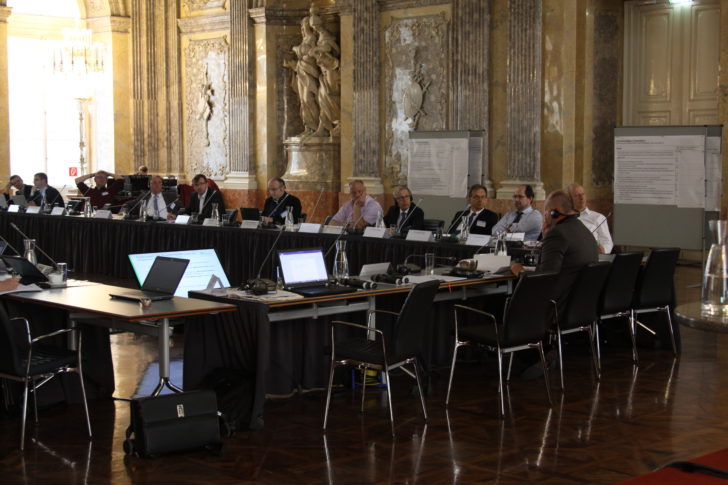«Vienna Declaration» demands adjustment of REACH by 2020

During the 11th International Nano-Authorities-Dialogue in March of 2017, the “Vienna Declaration” was adopted by the German-speaking delegations of authorities. As a consequence and recommendation, the conference demands the nano-specific adaptation of REACH by the year 2020. The declaration was submitted to the general secretary of the European council (Environment) and discussed as information in the meeting on June 19.
Since 2007, the Nano-Authorities Dialogue has been organized and moderated by the Innovationsgesellschaft, St.Gallen, on behalf of German-speaking authorities.
The authorities of Austria, Germany, Liechtenstein, Luxembourg and Switzerland have successfully cooperated in the field of nanotechnology for many years. On 29-30 March 2017, the 11th Nano-Authorities Dialogue took place in Vienna. At this event, conclusions on the current situation and recommendations on the future management of this key technology until the year 2020 were adopted ('Vienna Declaration').
Nanotechnology has the potential to open up new opportunities for numerous areas of life and the economy. Its applications are manifold and range from medicine, electronics and automotive technology to consumer products and environmental technology. Ensuring a high level of protection for human health and the environment is, however, an essential precondition for a long-term, sustainable use of the opportunities offered by nanotechnology.
Against the background of the circular economy, considering the entire life cycle of products is becoming increasingly important. The cornerstones for safety are often laid in place at the beginning of the life cycle - in the manufacturing process and in sustainable product design. The great complexity of global supply chains and material flows represents a further challenge. Where do we stand today? The political debate about environmental and health aspects of nanomaterials has long outgrown its infancy. At national and European level millions of euros of public funds have been invested in safety and risk research. This has contributed to filling the knowledge gaps in the field of safety and, to some extent, to further development of regulatory provisions.
Though much has already been achieved, there is still a need for action. To enable the development of “Sustai-NANO-bility”, measures promoting a sustainable approach towards nanotechnologies should be pushed forward. In particular, the following measures should be taken by the year 2020:
- Uniform and sound testing and detection techniques, measuring methods and criteria are indispensable to assess the potential health and environmental risks presented by nanomaterials. The elements already covered by the OECD need to be applied swiftly in a legally binding manner. The development of these techniques and methodologies, and their adaptation to the specific characteristics of nanomaterials will require an increased input of resources at European level.
- Work on the nano-specific adaptations of the legal framework, including the EU Chemicals Regulation REACH, must be completed by 2020.
- Since the beginning of industrial manufacturing of nanomaterials, relevant studies have focused on the issue of safety at work. Cooperation between various institutions (such as the EU Chemicals Agency and the EU Agency for Safety at Work) is clearly desirable, but discussions about different methodical approaches should not delay the implementation of the necessary preventive and protective measures.
- Products containing nanomaterials are not simply manufactured, processed and, following their use, recycled or disposed of, but may also enter the environment. The need to consider the full life cycle is clear. Research programmes and regulatory instruments therefore need to address the whole lifecycle.
- The European Commission’s decision to entrust the European Chemicals Agency with the creation of a European tool for collecting information on products containing nanomaterials (a 'Nano-observatory') is welcome. This observatory should ensure transparency regarding the types, quantities and uses of nanomaterials on the European market.
- Existing collaboration on exchange of data on nanomaterials at European and international level, in particular in the fields of toxicology, environmental monitoring and technology assessment, is appreciated and should be enhanced.
Source: http://data.consilium.europa.eu/doc/document/ST-10156-2017-INIT/en/pdf